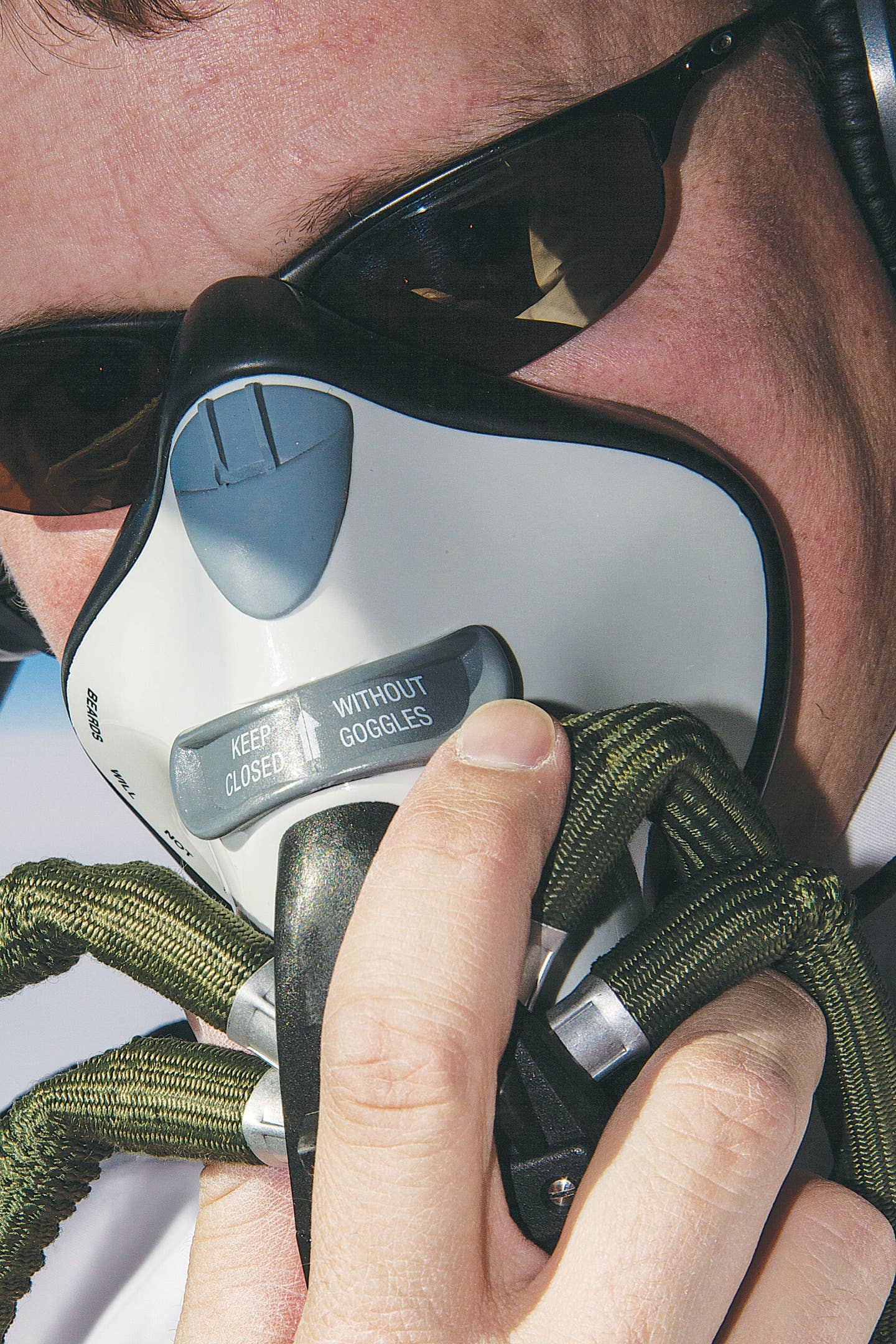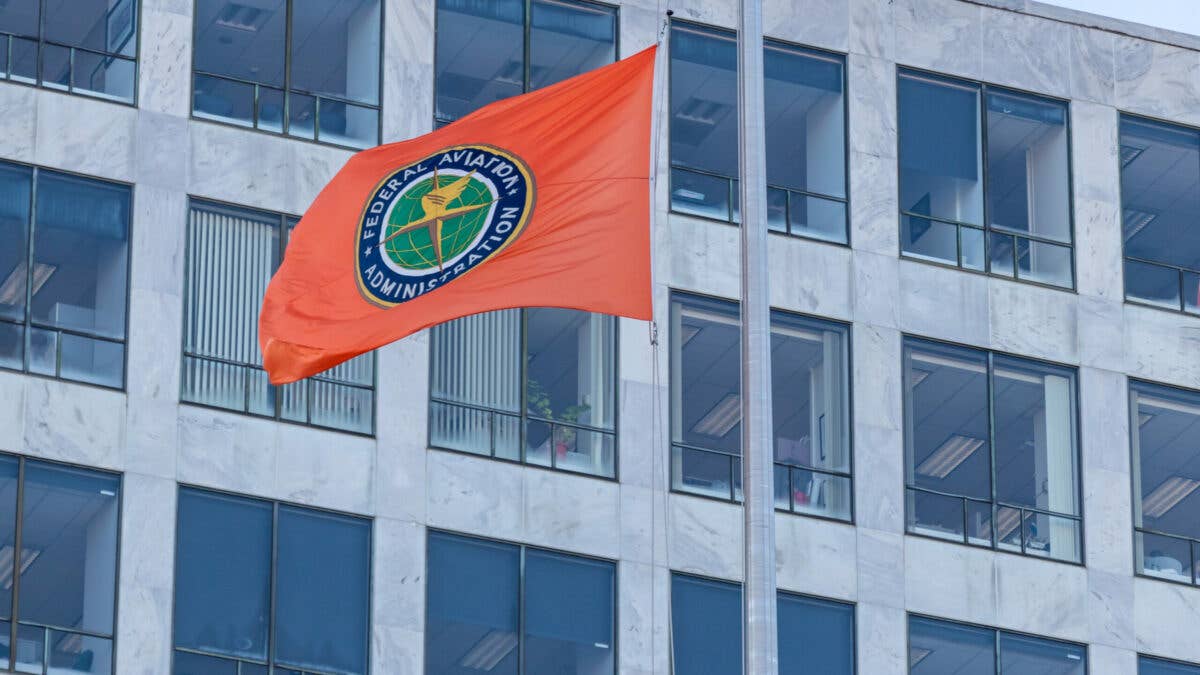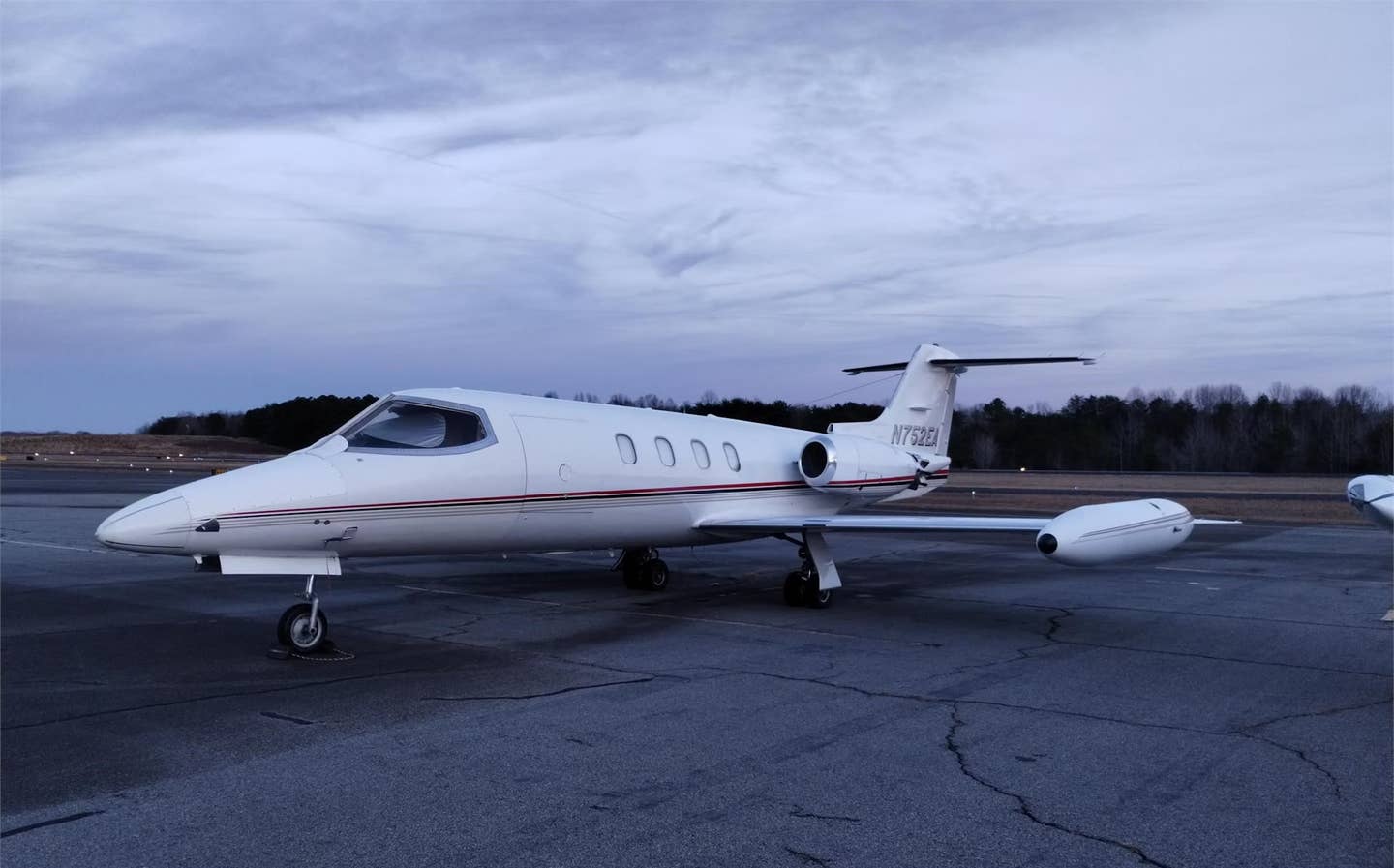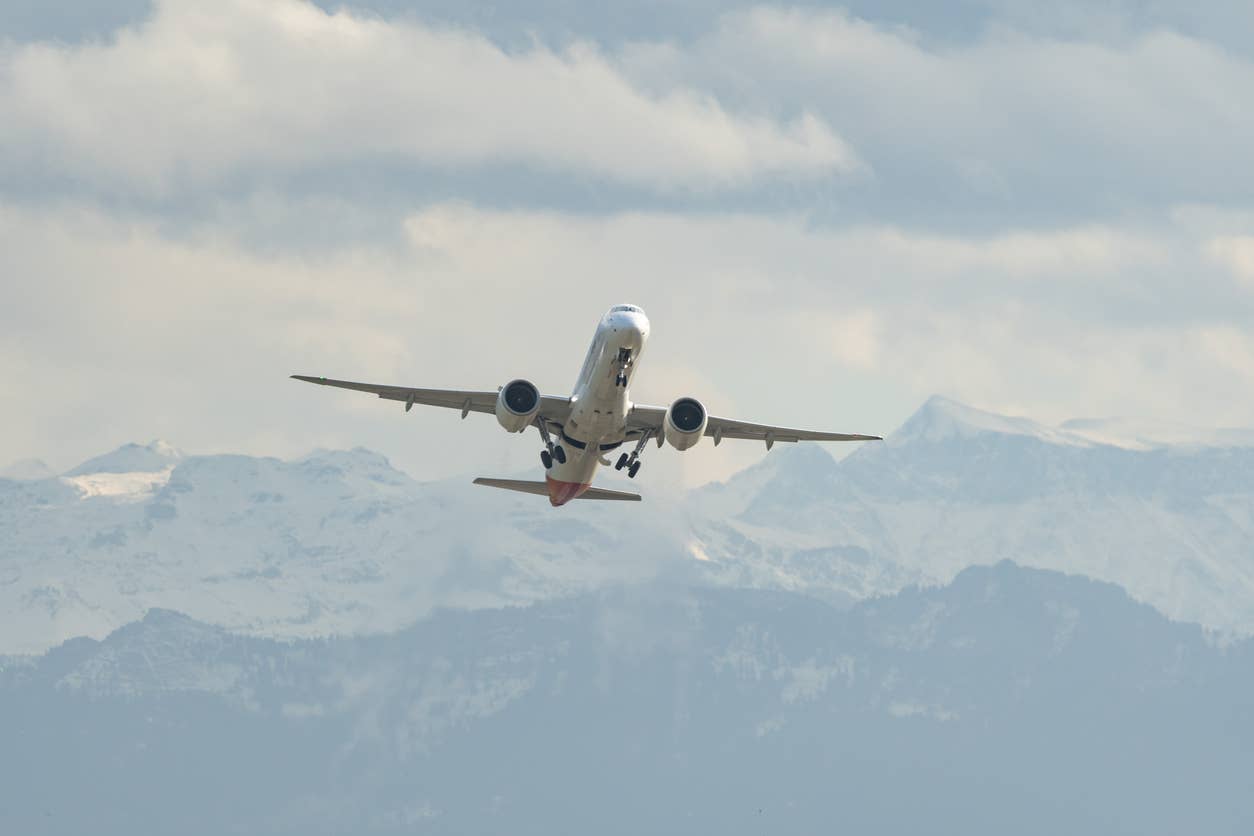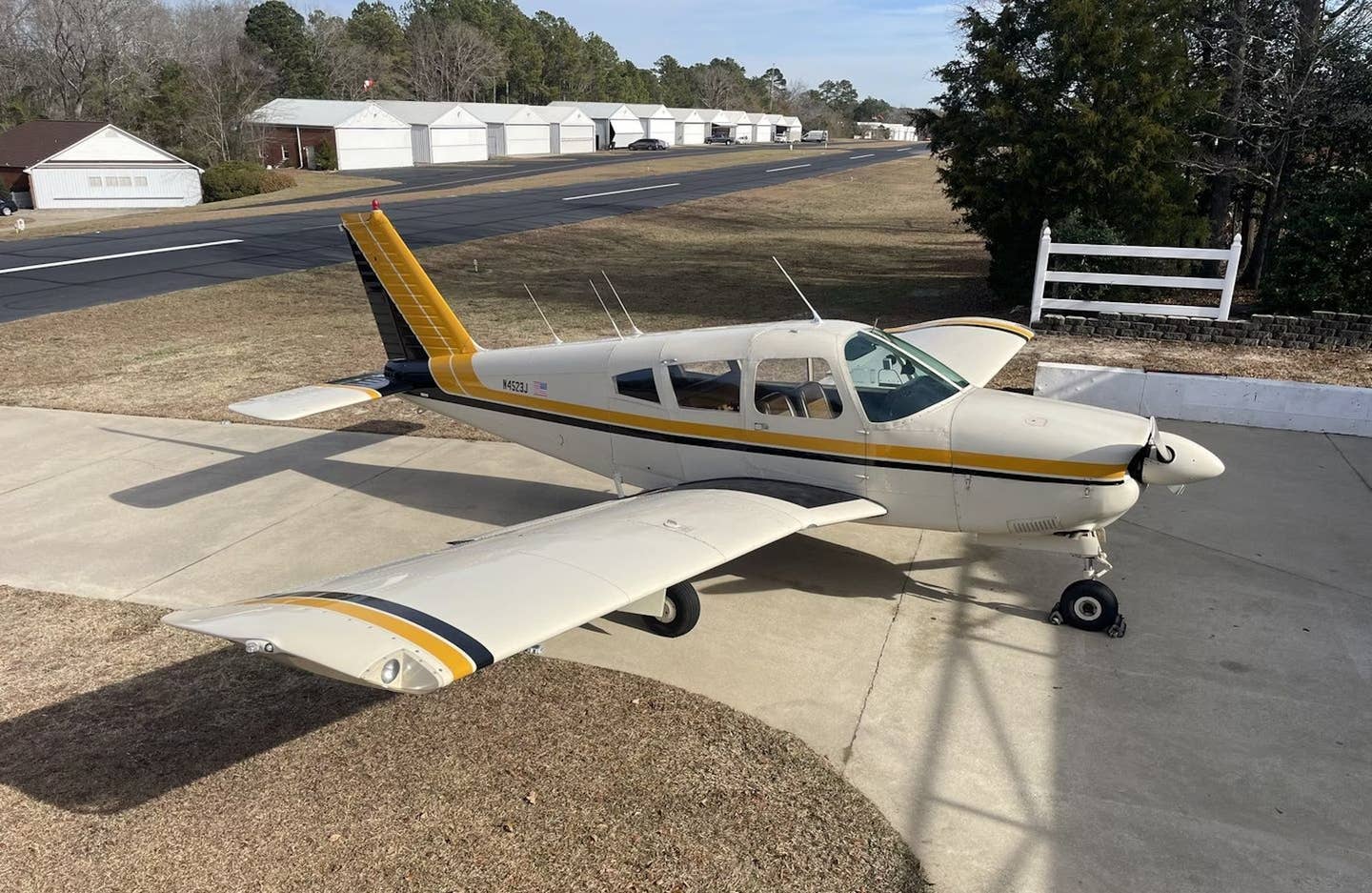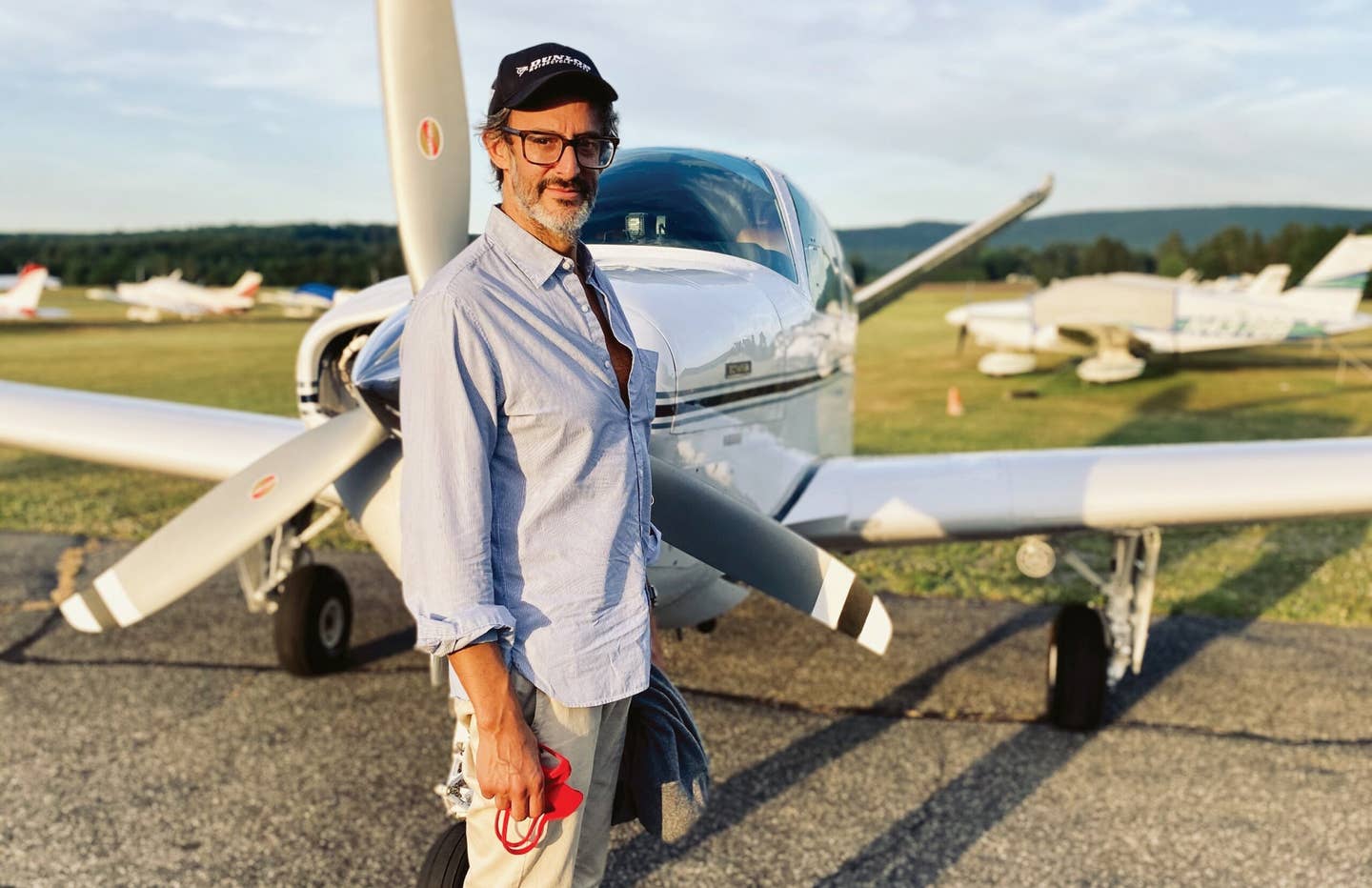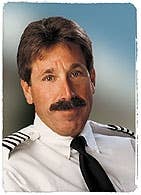
My simulator instructor grinned, "So, your captain has gone unconscious. It looks like he just had a heart attack. You're flying. What do you do?"
I knew it was a trick question, but I was a probationary pilot with less than a year at the airline. I felt obligated to give him a by-the-book answer. "You declare an emergency and land the airplane at the nearest suitable airport?" I asked.
The simulator instructor shook his head, chuckling. "Naaa…you move him out of your seat!"
I smirked. It was a professional airline joke that had been passed down for generations. That was almost 20 years ago. I'm not smirking today.
Why? It's really not because I am closer to the end of my career than the beginning, but rather that the FAA's definition of retirement age is being challenged. FAR Part 121.383c states: No certificate holder may use the services of any person as a pilot on an airplane engaged in operations under this part if that person has reached his 60th birthday.
This regulation has become a contentious issue. The present state of the industry has left some airline pilots without a pension, while others may be facing a similar fate. Flying beyond the age of 60 may be the only choice available, other than opting for a new career.
The retirement regulation was written into law in 1959. Although it has never been substantiated, there is convincing documentation that C.R. Smith, the first CEO of American Airlines, had a big part in the regulation. Former general E.R. Quesada had just been appointed administrator for the newly created FAA. American Airlines was about to enter the jet age. C.R. Smith was convinced that his older pilots might not be able to handle the transition from propellers. He felt that the new ranks of military-trained younger pilots were more capable. The pilots of American Airlines argued it was a simple matter of economics. The younger and more junior pilots would be training at a lower pay scale. The airline's company policy had already established 60 as the retirement age. C.R. Smith had considerable political clout in Washington. He persuaded Administrator Quesada to pursue an FAA mandatory retirement age for airline pilots. Regardless of what you believe, the rest is history.
So what are the arguments? The two largest pilot's unions, the Air Line Pilots Association (ALPA) and the Allied Pilots Association (APA), endorse the regulation as it stands. They cite medical reasons, or more specifically, the aging process. It is hard to dispute the fact that as we grow older so do our body parts. The major issue for airline pilots is our cardiac system. There seems to be no precise medical test to predict its functionality, but the odds of it deteriorating increase as we approach age 60. There seems to be no precise medical test to predict the functionality of other biological systems, either. There are just too many variables. Testing for cognitive functions is equally complicated. ALPA & APA agree that the FAA has supported an arbitrary number, but if it's not broke, why try to fix it?
Although in the minority, other airline pilots oppose this view. They consider the age 60 rule to be discriminatory. Their reasoning is that the FAA cannot support the FAR through valid medical or statistical arguments. The logic is simple. If age 60 is a defining point in a pilot's life, then prove that there is a higher risk in continuing to fly through some form of analysis. Medically, the analysis has been to argue that there is no conclusive form of testing that would predict problems. If you give the FAA the benefit of the doubt for this point, it still leaves another area open for controversy. Airline pilots are picked and probed during their initial screening process. In theory, only the best specimens are hired. Throughout an airline pilot's career, most airline pilots maintain the standards of a first class medical. For that reason alone, airline pilots tend to be healthier than the general population. There are a number of aeromedical examiners who will validate this fact, even for pilots past the age of 60.
Has the FAA researched the effects of aging on pilots recently? Well…yeah, but only because the U.S. Senate mandated an accurate analysis to be completed by January 1, 2000. Four studies were requested involving pilot accident rates. The third study was directed to include accident rates of air transport pilots in various groupings starting from age 21 through age 63 per 100,000 hours of flying time. (The Senate wasn't aware that the minimum age for an ATP is 23.) A similar analysis was done in 1994, but it left out a minor detail (among others). It didn't include pilots who had first class medical certificates with an ATP who were past the age of 59. ATP pilots engaged in Part 135 operations, prior to 1999, could fly past age 60. In any case, compiling this data was a monumental undertaking. I reviewed both the 1994 study and the 2000 study. I'll summarize the results of the later study. The data from this research is more specific to airline pilots. It involves a 10-year period from 1988 to 1997 and was conducted by the Civil Aeromedical Institute (CAMI) branch of the FAA.
The researchers plotted flight time versus age, and the result was a very subtle U-shape. For the very few accidents that occurred, there was an increase in the younger 20s age group, a decrease and level-off through the mid-50s, and a very gradual increase toward age 63. The year 2000 study included only pilots with a first class medical and an ATP. The results make sense. A young professional pilot has limited experience. As he or she ages, a greater experience level reduces the risk of an accident. From a scientific standpoint, the analysis did not provide conclusive proof that pilots past age 60 have more accidents. Although one could probably interpret a subtle trend toward more accidents as pilots approach 60, we all know that aviation accidents include many factors. It would be difficult for the study to include these factors.
The study can't be considered reflective of a professional pilot's cognitive function as he or she ages. The only definitive test of cognitive study for an airline pilot is something we do every training cycle at least once, if not twice, a year. We take our check rides in a simulator, demonstrating our abilities to handle normal, abnormal and emergency procedures.
If you disagree with the arguments I've presented up to this point, try this issue. Why have over 40 countries allowed their airline pilots to fly past age 60? El Al allows its pilots to continue flying to age 65. Australia's FARs have no age limitation as long as a pilot over 65 is successful in completing a proficiency check every six months. The other governments all can't be crazy.
Over the course of their careers some airline pilots have suffered medical deficiencies that have temporarily disqualified them from flying. Certain heart conditions, diabetes and depression are all examples of medical conditions that are treatable. Once the FAA is satisfied, through proper testing, that these conditions are no longer a potential threat to public air safety, the pilot is allowed back on flying status. Why would a healthy 60-year-old be considered a potential threat to public air safety simply because of his age?
After researching a variety of unbiased data, I have found that the arguments for allowing airline pilots to continue flying after age 60 are quite reasonable. The pilots who are minority advocates of this movement are to be admired for their fortitude. However, I have one basic problem. If not 60, than when? My father will be 80 years old next year. He is the youngest 80-year-old man I have ever met. Would the public be comfortable knowing that a man their grandfather's age would be flying them to Florida to see their grandfather?
We all reach a certain point in our lives when we know that our performance is not up to the standards we started with. None of us can predict the moment that performance becomes unacceptable. With no precise method to measure this standard for a one-size-fits-all airline pilot, medically or cognitively, picking another retirement age will just become another arbitrary number.
If we're going to debate this issue, let's not beat around the bush. I'm including the FAA, my fellow airline pilots and the airlines. There are some economic issues that support the age 60 rule. For argument's sake, let's increase the new mandatory retirement to age 65. What happens to all the pilots who had been forced to retire and still qualify? Do we allow them to return, displacing the pilots at the bottom of the seniority list? The industry already has a record number of furloughed pilots. Do we decrease the opportunity for the remaining pilots to advance to a higher pay level by keeping older pilots in the seat longer? Will we need to restructure our company retirement contributions, while the airlines are reporting unprecedented underfunding of the plans for those of us still fortunate enough to have them? These are all valid concerns. Let's not hide exclusively behind the medical reasons. To a certain degree, it is about the money. And if it is about the money, then maybe the retirement age should rest with the contractual agreements each airline has with its pilots. That's where it was in 1959.
At this moment, I am not facing the termination of my pension. I don't have kids in college. For those fellow pilots who find themselves in this position, I can only imagine your pain. I understand the desire to continue in the profession past the age of 60. It's what you know best. Yes, 60 is an arbitrary number. For me, it's not broken. I don't advocate fixing it. Even if I were facing the loss of my pension, I'm not sure another handful of years would make the difference in my comfort during retirement. On my 60th birthday I will look at my uniform and be thankful that I had the opportunity to wear it out. I will see it as the time for the younger folks to take my place and for me to move over.

Subscribe to Our Newsletter
Get the latest FLYING stories delivered directly to your inbox

